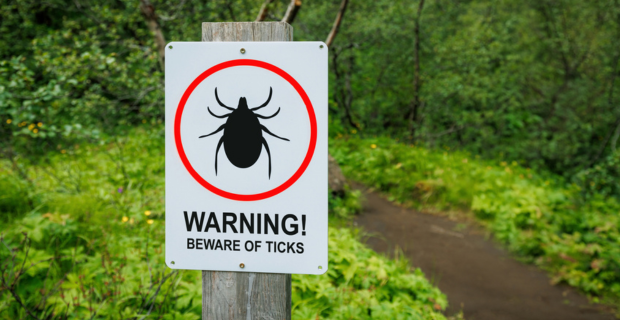Date Published: 2024/06/13
Read Time: mins
What to do when you find a tick

With the peak summer travel season just ahead, now is the ideal time to prepare a first aid kit with supplies to repel and remove ticks. A tick bite might not seem like a big deal, but the reality is that a single bite from a blacklegged tick increases your risk of Lyme disease, anaplasmosis, Powassan virus, and babesiosis.
The blacklegged tick, also known as a deer tick, can spread any of these diseases. Tick awareness is critical to ensure everyone enjoys the trip and comes home healthy.
Where do blacklegged ticks reside?
Blacklegged ticks can appear anywhere in Ontario, but they are most prevalent in the western half of the province. Below are several cities identified by Public Health Ontario as having a high tick population.
- Hamilton
- London
- Kingston
- Kitchener
- Mississauga
- Niagara Falls
- Ottawa
- Peterborough
- Prince Edward Point
- Westport
Please note these are not the only cities in Western Ontario that the public health department has deemed as risky. Ticks can appear anywhere in the province, and they move from one area to another by attaching themselves to deer and birds.
The challenge of spotting blacklegged ticks
Blacklegged ticks can be difficult to see. They survive by attaching themselves to humans or other animals and feeding on their blood. The longer a tick has been alive and feeding, the larger it will be and the easier to spot. Just keep in mind that young ticks that have completed a few feeds can cause just as much damage as older, plumper ticks.
Public health programs in Canada exist to identify ticks and educate the public about recognising, avoiding, removing, and disposing of them. Here is a tick submission and testing form that has more information.
How to prevent tick bites
Be sure to pack insect repellent when you head out in your RV that has picaridin or DEET on the label. People who camp, hike, or live in an area with tall grass are at the greatest risk of a tick bite. Taking tick protection seriously is essential, especially since people do not always know when a tick has bitten them.
What to wear to prevent tick bites
Choosing your clothes wisely is a big part of tick safety. Wearing light-coloured clothing is always a good idea, since it makes it easier for you to see ticks on your body. Here are some other wardrobe suggestions:
- Tuck the ends of your pants into your socks.
- Wear long-sleeved shirts and long pants. You can look for lightweight, breathable clothing if you think you will get too warm.
- Wear closed-toed shoes.
You can also consider investing in special clothing designed specifically to repel ticks.
Where to look for ticks
Ticks do not always attach themselves in visible places. Be sure to check the following areas on yourself, your children, and your pets:
- Behind the knees and ears.
- Inside the groin area, belly button, and armpits.
- On top of the head
- On the back of the neck and back, which will require a mirror or assistance from someone else when checking yourself.
If you do spot a tick, kill and dispose of it right away.
What to do when you find a tick
When packing your camping gear, be sure to include a pair of fine point tweezers for removing ticks. When you spot one, use the tweezers to grab it by the head and pull straight out without twisting or turning the tick’s body.
Once the tick is out, wash the area of the body where it attached with an alcohol-based sanitizer or soap and water. You then want to place the tick in a plastic bag or an enclosed container like a pill bottle. If you find any ticks on your clothing, place them in a dryer on high heat for at least 10 minutes to kill them.
Never try to burn or smother the tick since this could cause it to expel its stomach contents onto your skin and cause an infection. If you are not certain the tick is dead, try freezing or drowning it until you know for sure. You can then dispose of it in the nearest trash receptacle.
Update your RV insurance before hitting the road
With so many pre-camping preparations to make, it can be easy to overlook updating your RV insurance. We invite you to contact Orbit Insurance Services for a quote today and then cross one more thing off your to-do list.